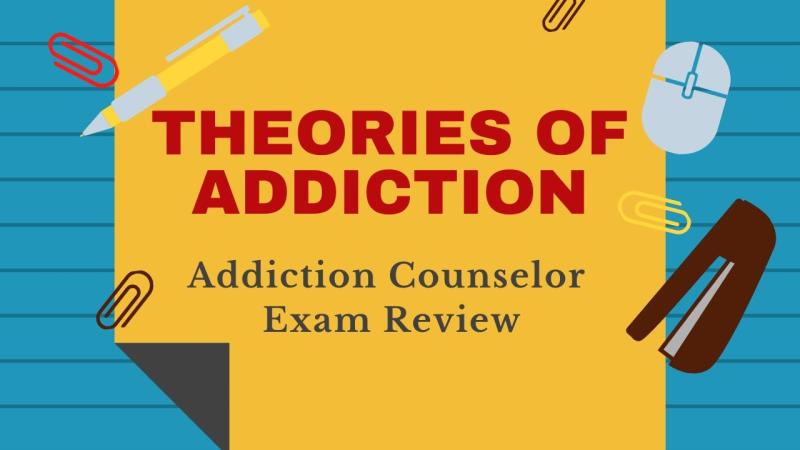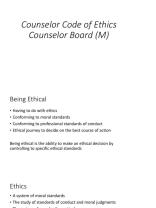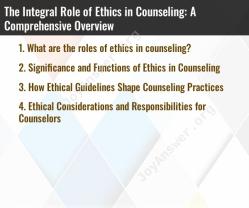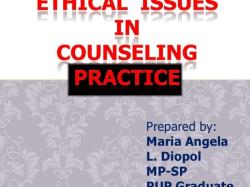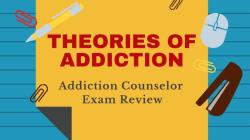What is a certified addiction counselor?
A Certified Addiction Counselor is a professional who is trained and certified to provide counseling and support services to individuals struggling with substance abuse or addiction issues. These counselors play a crucial role in helping individuals overcome their dependence on drugs or alcohol and work towards sustained recovery. The specific duties and responsibilities of a Certified Addiction Counselor can vary, but they generally include the following:
Assessment and Evaluation:
- Conducting assessments to evaluate the extent of an individual's substance abuse or addiction, including the impact on their physical and mental health, relationships, and overall well-being.
Treatment Planning:
- Developing personalized treatment plans based on the individual's unique needs, strengths, and challenges. This may involve determining appropriate counseling approaches, therapeutic interventions, and goals for recovery.
Individual and Group Counseling:
- Providing one-on-one counseling sessions to address the emotional, psychological, and behavioral aspects of addiction. Additionally, facilitating group therapy sessions to create a supportive and therapeutic environment for individuals in recovery.
Education and Prevention:
- Offering education and prevention programs to raise awareness about the risks of substance abuse and addiction. This may involve working in community outreach, schools, or other settings to provide information on the consequences of substance abuse.
Crisis Intervention:
- Responding to crisis situations and providing immediate support and intervention when individuals in recovery face challenges or relapse. This may involve collaborating with other healthcare professionals and crisis intervention teams.
Advocacy:
- Advocating for individuals in recovery by connecting them with appropriate resources and services. This may include helping clients access healthcare, legal support, employment assistance, and other essential services.
Collaboration with Treatment Teams:
- Collaborating with other healthcare professionals, such as doctors, psychiatrists, and social workers, to ensure comprehensive and integrated care for individuals with addiction issues.
Documentation and Reporting:
- Maintaining accurate and confidential records of client assessments, treatment plans, progress notes, and other relevant information. This documentation is crucial for tracking the client's journey and may be required for regulatory purposes.
Ethical Practices:
- Adhering to ethical standards and guidelines in the field of addiction counseling. This includes maintaining confidentiality, respecting clients' autonomy, and promoting a non-judgmental and supportive therapeutic relationship.
To become a Certified Addiction Counselor, individuals typically undergo specific education and training in addiction counseling, accumulate supervised clinical experience, and pass a certification examination administered by a recognized certification board or organization in their region. The certification process ensures that counselors have the knowledge and skills necessary to work effectively with individuals facing substance abuse challenges.
What defines a certified addiction counselor?
A certified addiction counselor can be defined in several ways, depending on the specific context:
Formal Definition:
- A professional who has met the educational, experience, and licensing requirements to provide addiction counseling services. This includes completing a bachelor's degree in a relevant field, gaining supervised clinical experience, passing a national exam, and meeting state licensing requirements.
- A holder of a recognized credential such as the National Board for Certified Counselors (NBCC) Certified Addiction Counselor (CAC) or the National Association of Addiction Counselors (NAADAC) Certified Addiction Specialist (CAS) credential.
Key Characteristics:
- Specialized knowledge and skills: Certified addiction counselors possess in-depth knowledge of addiction, its causes, effects, and treatment approaches. They are skilled in various therapeutic techniques, assessment, and client communication.
- Commitment to ethical practice: They adhere to professional ethics codes and maintain confidentiality of client information.
- Continuous learning: They stay current with the latest research and advancements in addiction treatment through ongoing professional development and continuing education.
Role in the Community:
- Provide individual, group, and family therapy to individuals struggling with addiction and their loved ones.
- Develop and implement treatment plans tailored to individual needs and circumstances.
- Offer support and guidance during the recovery process.
- Collaborate with other healthcare professionals to ensure comprehensive care for clients.
- Advocate for policies and programs that address addiction and promote public health.
Overall, a certified addiction counselor is a qualified and compassionate professional dedicated to helping individuals overcome addiction and achieve a healthier life.
I hope this helps define what a certified addiction counselor is and the important role they play in society!
